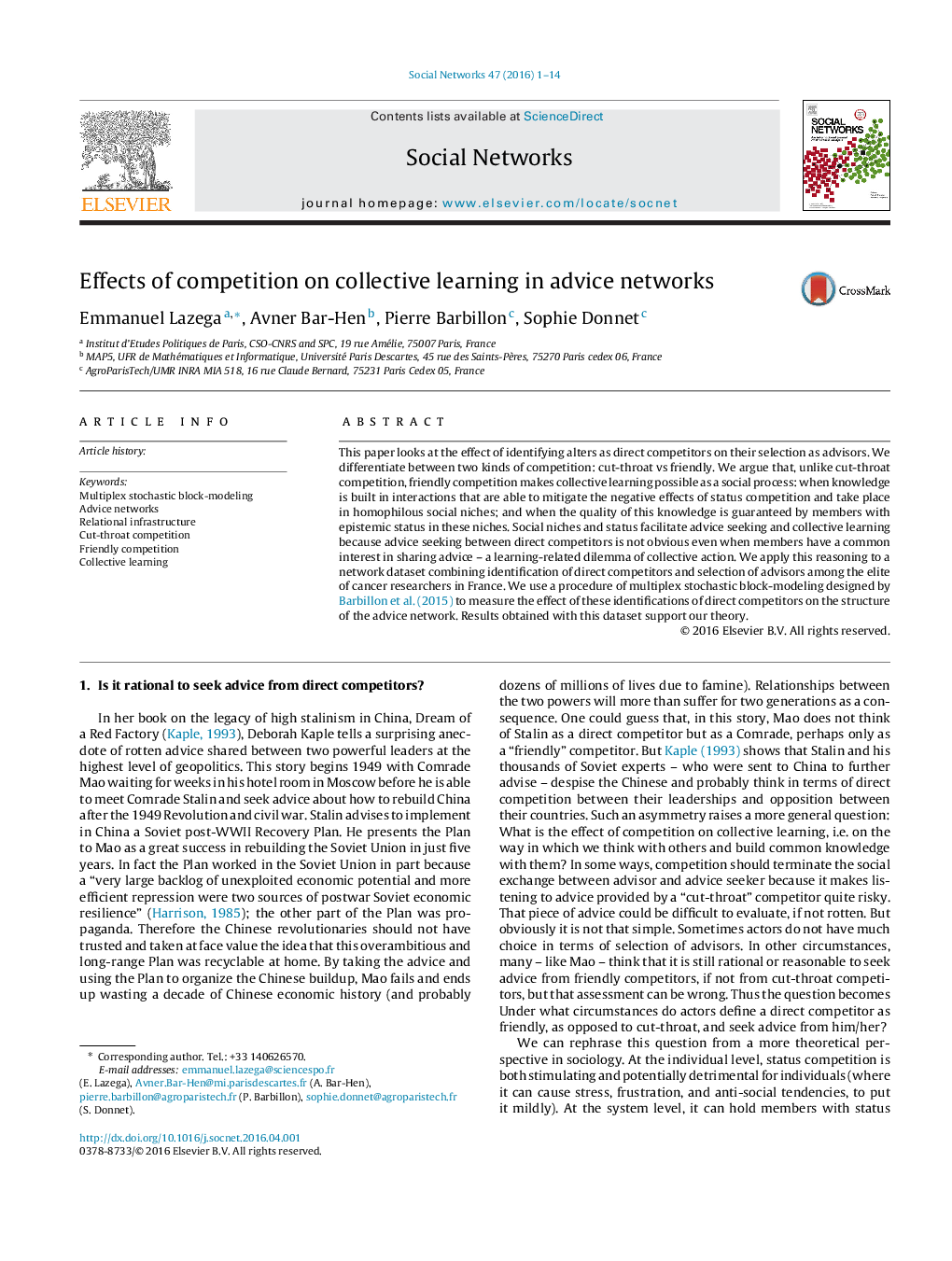| Article ID | Journal | Published Year | Pages | File Type |
|---|---|---|---|---|
| 7538378 | Social Networks | 2016 | 14 Pages |
Abstract
This paper looks at the effect of identifying alters as direct competitors on their selection as advisors. We differentiate between two kinds of competition: cut-throat vs friendly. We argue that, unlike cut-throat competition, friendly competition makes collective learning possible as a social process: when knowledge is built in interactions that are able to mitigate the negative effects of status competition and take place in homophilous social niches; and when the quality of this knowledge is guaranteed by members with epistemic status in these niches. Social niches and status facilitate advice seeking and collective learning because advice seeking between direct competitors is not obvious even when members have a common interest in sharing advice - a learning-related dilemma of collective action. We apply this reasoning to a network dataset combining identification of direct competitors and selection of advisors among the elite of cancer researchers in France. We use a procedure of multiplex stochastic block-modeling designed by Barbillon et al. (2015) to measure the effect of these identifications of direct competitors on the structure of the advice network. Results obtained with this dataset support our theory.
Keywords
Related Topics
Physical Sciences and Engineering
Mathematics
Statistics and Probability
Authors
Emmanuel Lazega, Avner Bar-Hen, Pierre Barbillon, Sophie Donnet,
